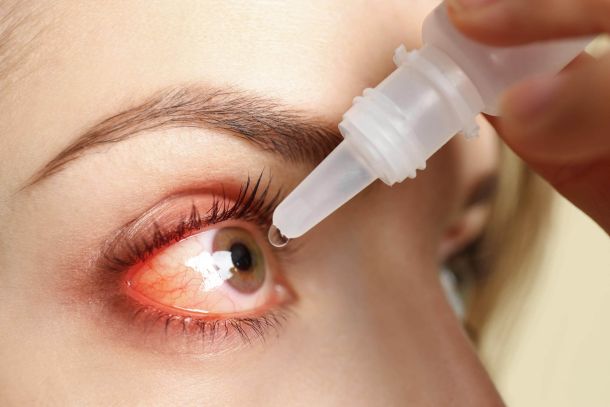Eye allergy: what it is and how to treat it
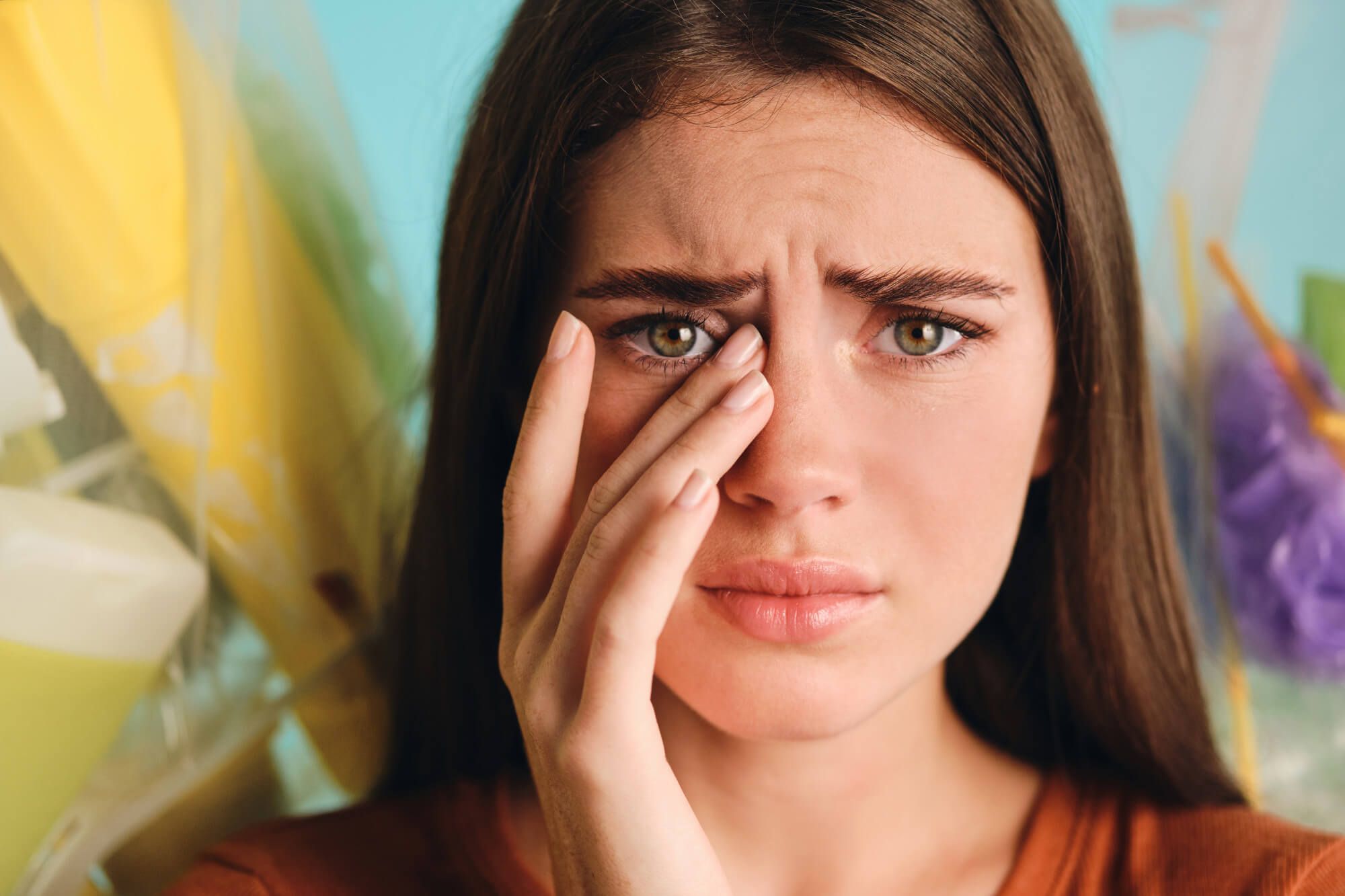

Irina Makarova
Eye allergies are a common condition resulting from contact with allergens. Various symptoms may appear under the eye or on the eyelid, which may be caused by seasonal or year-round allergens. In this article, an experienced allergist will explain how allergies manifest on the eyes, what to do if your eyes itch, and how to remove an allergic reaction on the skin of your eyelids.
Causes of eye allergies
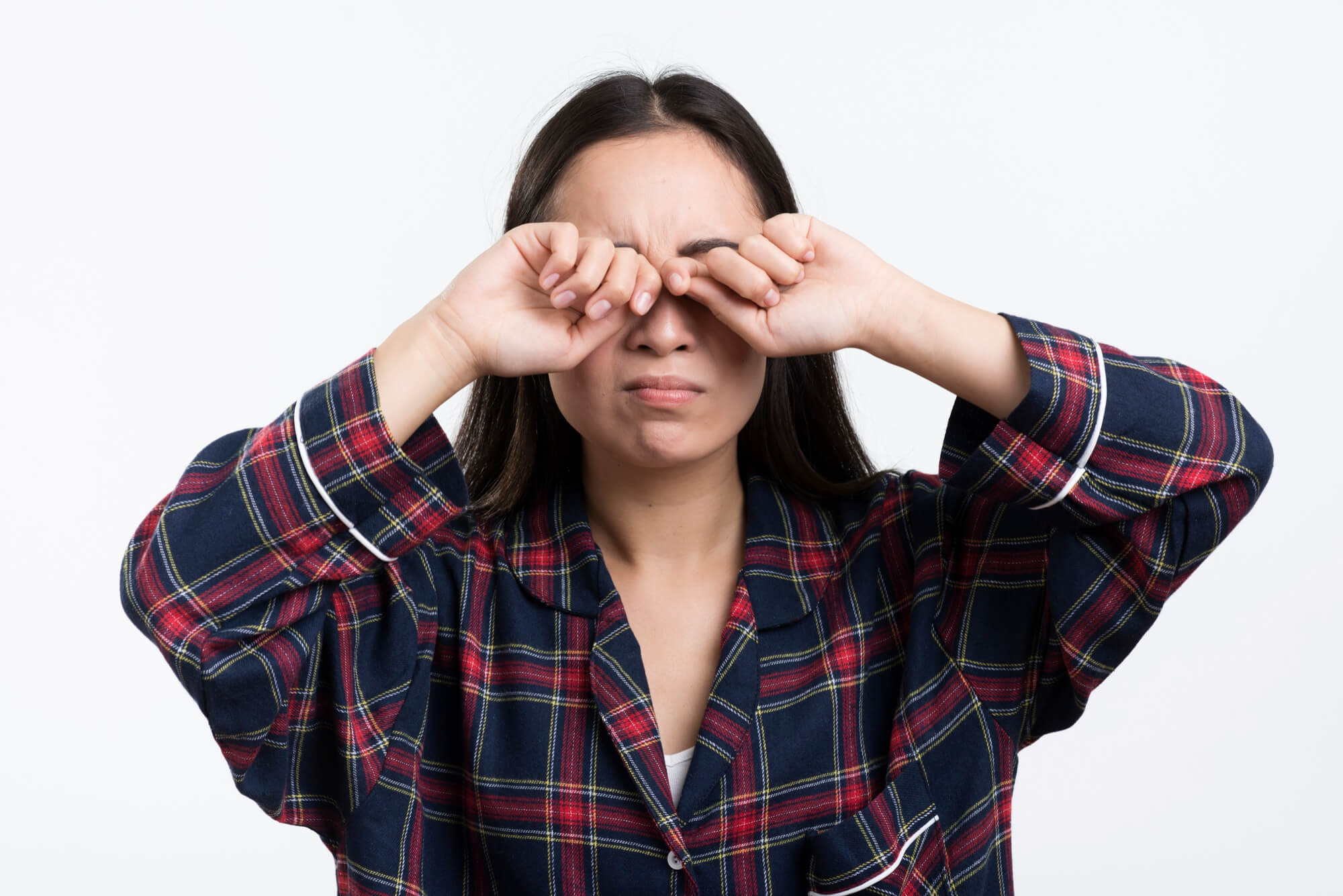
Seasonal allergens
- The upper eyelid may become swollen and red because of plant pollen, especially in spring and summer. Allergy symptoms under the eyes and on the eyelids can occur from contact with pollen from trees, grasses and weeds.
- Fungal spores are also seasonal allergens that cause eye allergies. They can cause irritation and itching around the eyes, especially during humid and warm seasons.
Year-round allergens
- Year-round allergens are house dust and mites, which cause allergies on the eyelids and under the eyes. They can cause an allergic reaction at any time of year, especially if a person is prone to allergies.
- Contact with animals such as cats, dogs and birds can cause allergic reactions such as itching, tears and red eyes.
- Mold is another year-round allergen that can cause eye allergies.
Contact eye allergies
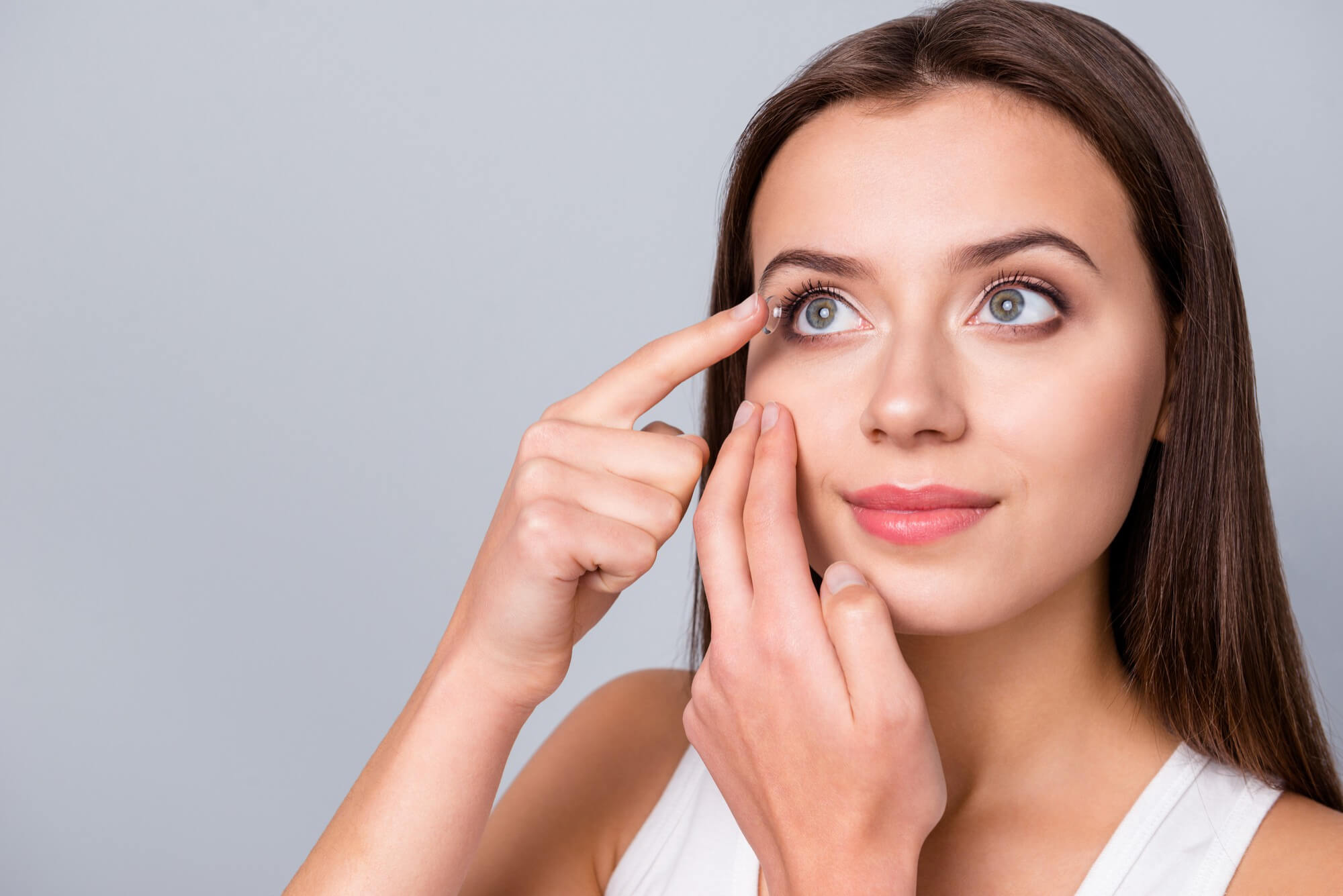
- Contact eye allergies can occur due to the use of cosmetics that contain allergens or irritants. Such reactions may appear in the form of itching, redness, swelling on the upper and lower eyelids.
- Allergic reactions can occur in people who wear contact lenses. These can be related to the lenses themselves, their care solutions, or even contact with pollen and other allergens.
- The materials used to make eyeglass frames can also cause an allergic reaction on the skin of the eyelids. Some metals, such as nickel, can cause contact allergies on the eyes.
Symptoms of eye allergies
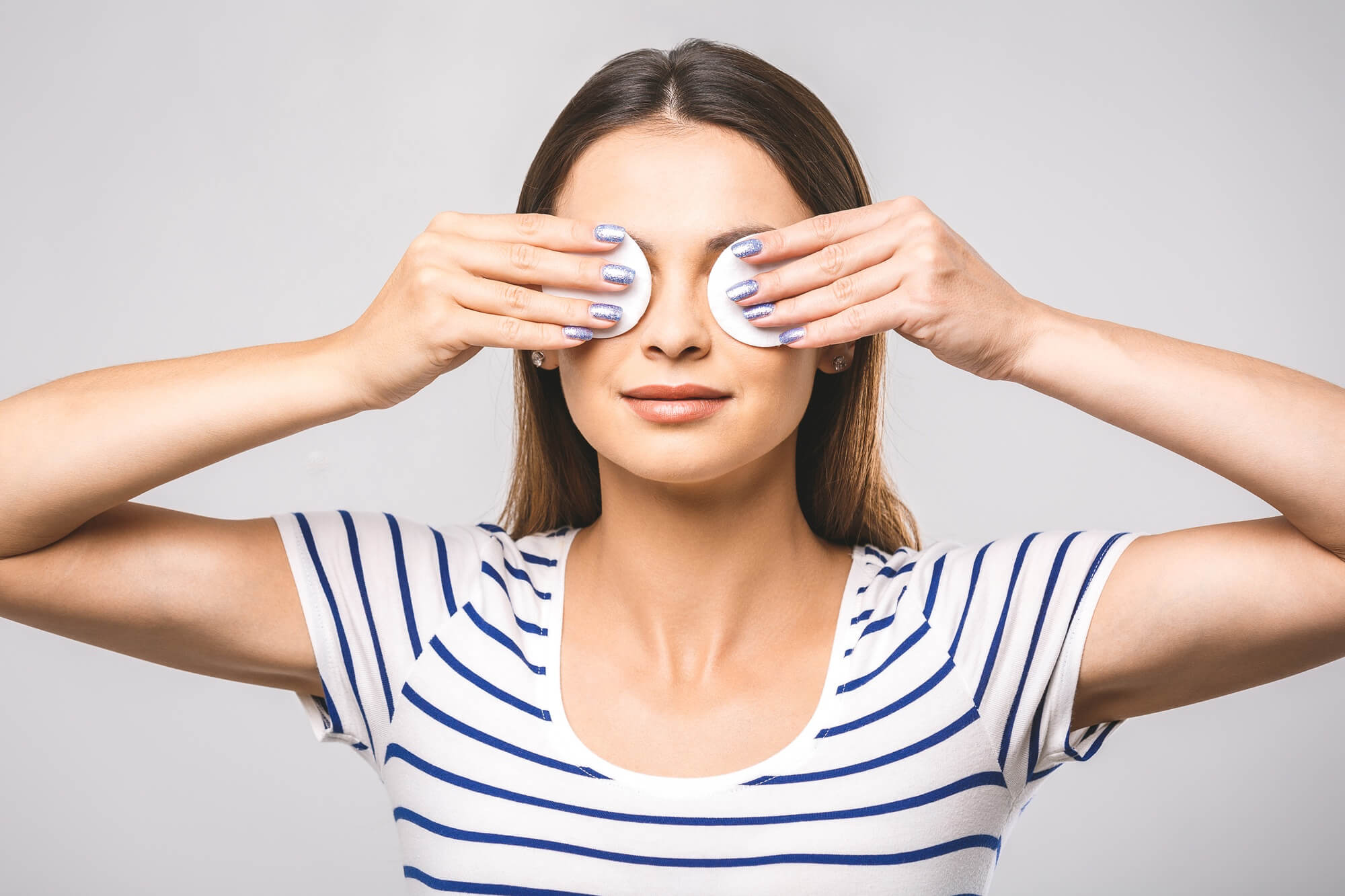
- The main symptoms of eye allergies include itching, redness, and swelling around the eyes. These symptoms may be more pronounced in the upper or lower eyelid, depending on the individual body.
- Dry and irritated eyes are also common symptoms of allergies. This can be caused by over-sensitivity to or exposure to allergens in the eyes.
- Tearfulness and difficulty seeing can occur with eye allergies. Tears can cause blurred vision, especially in people who wear contact lenses.
- Chronic conjunctivitis is an inflammation of the mucous membrane of the eye that can be caused by long-term exposure to allergens. This symptom is characteristic of eye allergies and may be accompanied by itching, redness, and swelling.
Diagnosis of eye allergy
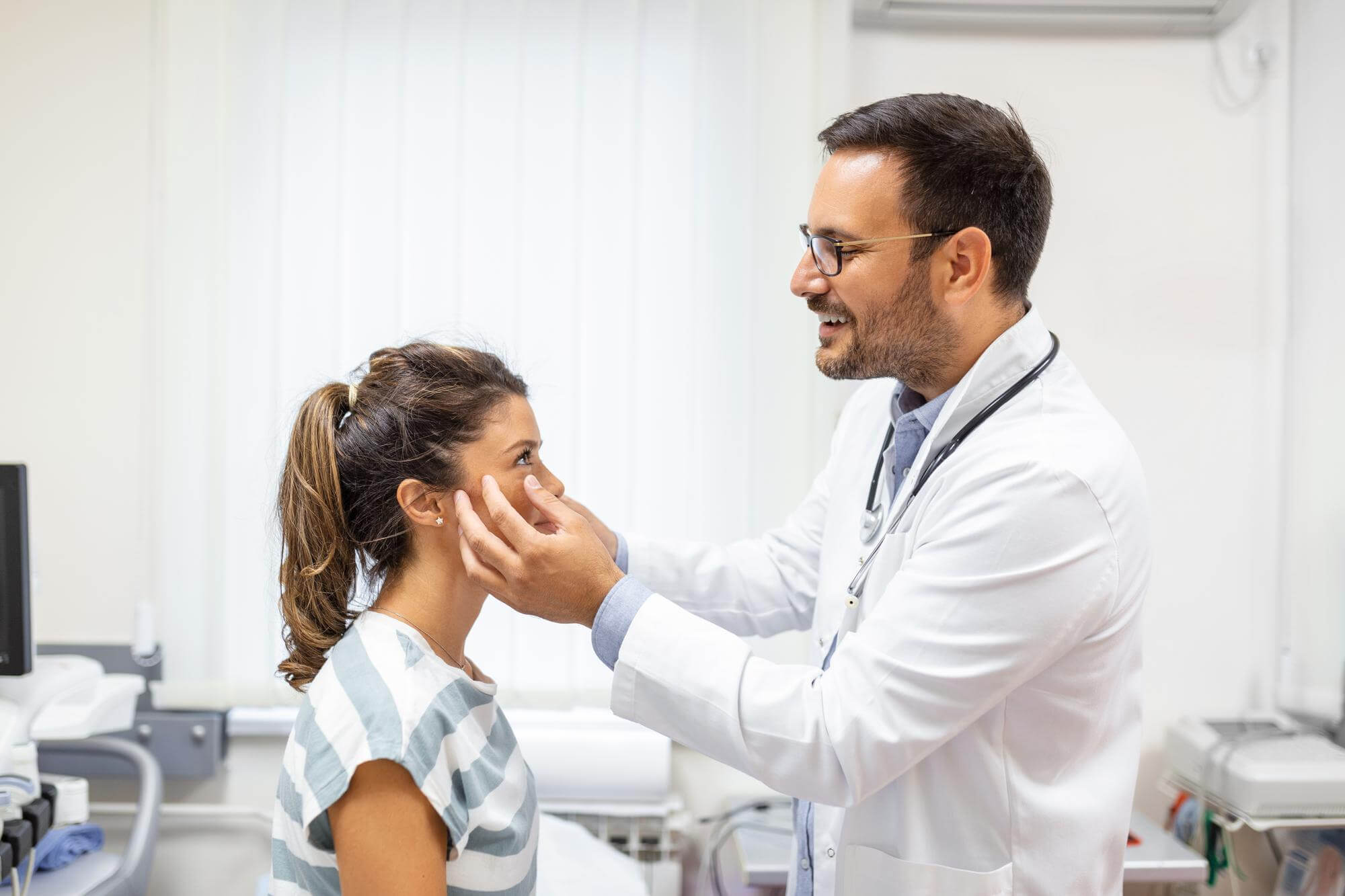
If you have eye allergy symptoms, you need to see an allergist. The specialist will examine you and gather your medical history to determine the possible causes of the allergic reaction.
Before making a diagnosis of an eye allergy, the doctor must rule out other conditions that may have similar symptoms, such as infectious or viral eye disease.
Special tests, such as allergy tests, blood tests for allergen-specific immunoglobulin E (IgE), or skin tests may be ordered to confirm the diagnosis.
Treatment of eye allergies
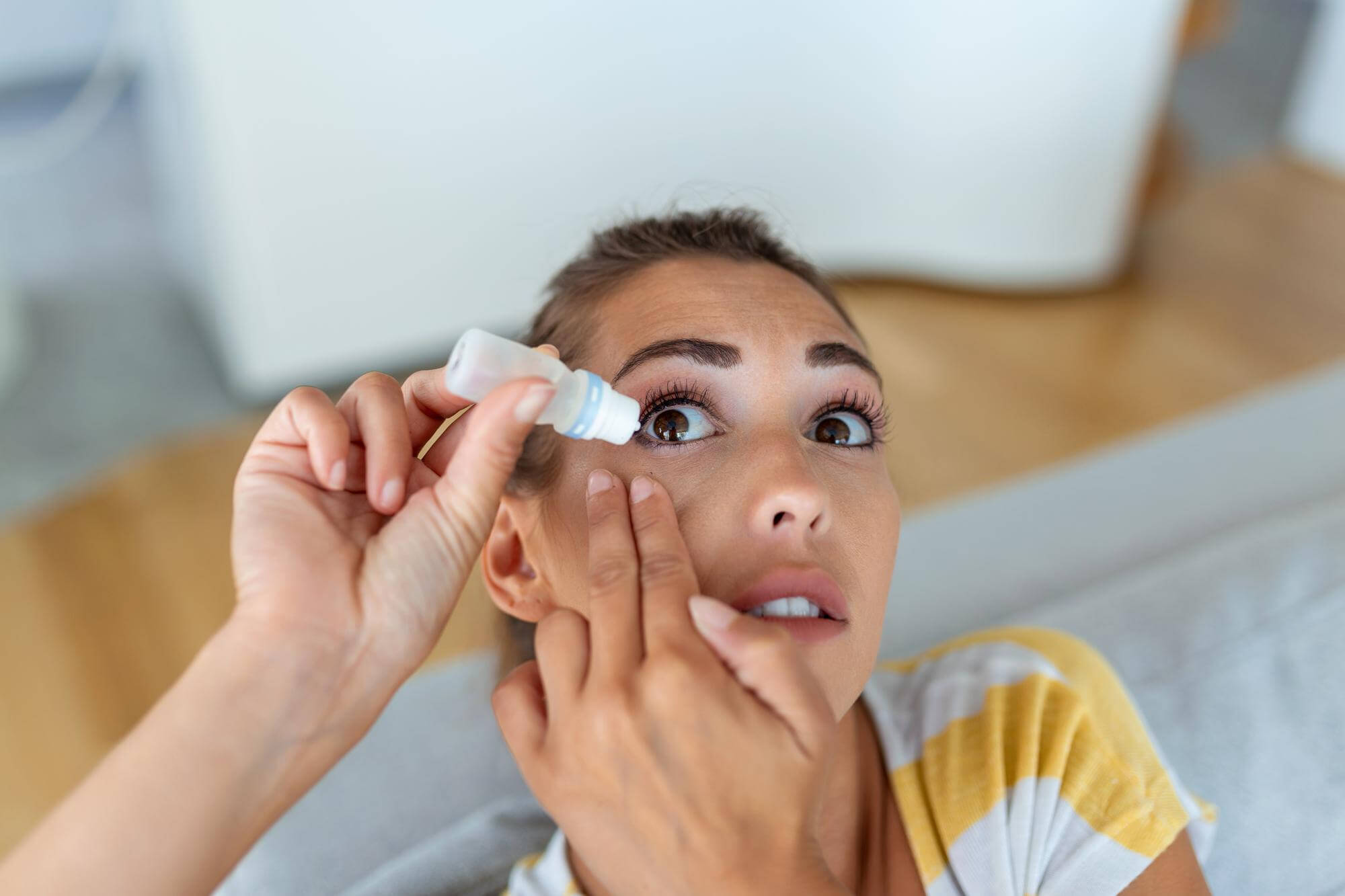
The first step in treating an eye allergy is to eliminate contact with the allergen. This may require lifestyle changes, such as improving housekeeping, using hypoallergenic cosmetics, or changing eyeglass frames.
Application of antihistamines
Antihistamine tablets such as loratadine, cetirizine or fexofenadine can help reduce eye allergy symptoms by reducing itching, redness and swelling.
Antihistamine eye drops, such as ketotifen or azelastine, can also be prescribed to relieve allergy symptoms. They can help reduce itching, redness, and swelling, as well as dryness and tears.
Steroid and nonsteroidal anti-inflammatory drugs
In some cases, your doctor may prescribe steroidal or non-steroidal anti-inflammatory drugs, such as hydrocortisone or indomethacin, to reduce inflammation and swelling caused by eye allergies.
Compresses and eye hydration
Cold compresses or artificial tears can be used to relieve eye irritation and dryness. They can help reduce discomfort and improve eye health.
Immunotherapy
Immunotherapy may be recommended for severe or chronic eye allergies, where small doses of an allergen are gradually given to desensitise the body to it.
Preventing eye allergies

To prevent eye allergies one should avoid contact with allergens, clean the house regularly, use hypoallergenic cosmetics and look after their own health. It is also recommended to pay attention to psychosomatics, as stress and overwork can aggravate allergic reactions.
In conclusion, eye allergies are a common condition that can cause symptoms such as itching, redness, swelling, dryness and lacrimation. To treat eye allergies, it is important to see an allergist and follow his or her recommendations, including the use of antihistamines, steroidal and nonsteroidal anti-inflammatory drugs, and immunotherapy if necessary. Take care of your eyes and take care of your health by avoiding contact with allergens and following the specialist's recommendations. This way, you can minimize the risk of eye allergies and maintain good vision throughout your life.
In the event of eye allergies in children, it is important to see a doctor as soon as possible, as allergy treatment in children may differ from that in adults. The doctor will choose safe and effective medications that will help alleviate the child's condition and reduce the risk of complications.
In addition, you should pay attention to the fact that allergic reactions can occur not only on the eyelids and under the eyes, but also in the corners of the eyes, on the upper and lower eyelids, as well as on the skin around the eyes. Therefore, with any manifestation of allergies on the eyes should consult a doctor and undergo appropriate diagnosis to confirm the diagnosis and prescribe adequate treatment.
New materials
Popular Articles
We recommend reading
Contact us in the Contact Us section to ask questions, offer ideas, or for more information about our allergy resource.
Our articles are your trusted source of allergy knowledge. Learn how to make life with allergic reactions easier on our specialized portal.
©
Lechenie-Allergii.com. All rights reserved.
© Lechenie-Allergii.com. All rights reserved.
The information on this site is for informational purposes only and is not a substitute for professional medical advice. We recommend consulting with qualified medical professionals for accurate information and advice.
 English
English  Українська
Українська  Русский
Русский 








